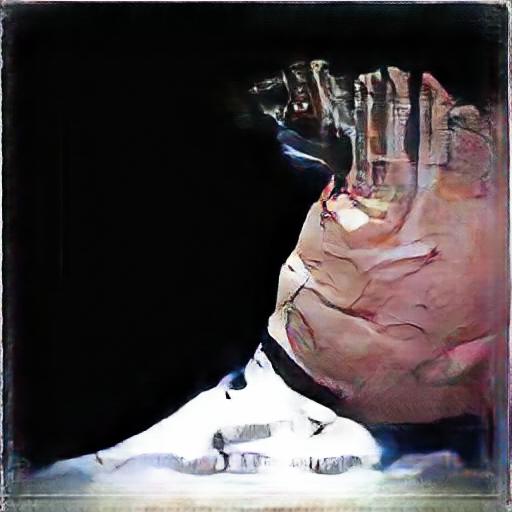It’s hard to penetrate the emotional depths of people who have suffered or are suffering extreme abuse, trauma, or cultural conditioning. Empathy is hard enough when a person’s experience falls within the bounds of “normality.”
In extreme cases, words never seem to be sufficient to comfort or heal.

In the last few weeks, I read three brilliant books telling very different stories of torment and terror.
My Absolute Darling by Gabriel Tallent is a fictional account of a 14-year-old girl sexually abused by her sick, controlling father. She is tormented by the fact that she still loves him in spite of his abuse and by the harsh judgments she makes about herself because she “lets” the abuse continue. What complicates the situation is that the father has acquired the verbal facility to manipulate and control his daughter with his convoluted philosophy. The girl lives in terror of the next knock on the door and his demands for sex.
In this book, the heroine’s name is Turtle. At age 6, she gets marksmanship lessons; at 14, she’s doing pull-ups while her father holds a knife between her legs. The father defends his actions by claiming to teach her conviction: “Strip yourself of hesitation and doubt, train yourself to an absolute singularity of purpose.” Turtle wanders the woods barefooted while her father drinks and reads Descartes. Tallent writes of Turtle, “She knows what happened; but why it happened, what it meant, she doesn’t know.” His writing evokes what the body and mind can endure.
The Tiger’s Wife by Tea Obreht is a fictional tale of a mute woman who was physically abused by her husband and was accused of “marrying” a tiger who had escaped from the zoo and was creating fear in the community. The bizarrely contrived story of magical realism provides cover for the real issues people have regarding death. In this book, Obreht brings to life the complexities of Balkan history and exposes the suspicions and superstitions that pervade the region. The people of the region are tormented by ghosts of the past and present and try to keep the ultimate terror of their own death deeply buried.
Norwegian Wood by Haruki Murakami is another fictional story of a couple who falls in love after the suicidal death of the woman’s mate and the man’s best friend. The book explores a wide range of lifestyles with sexual repression on one end of the scale and sexual freedom on the other end. It also deals with the mental health challenges of losing a loved one. The women are tormented by their mental illness. The men are terrorized by their existential loneliness.

These books are just three examples of how people experience torment and terror in their lives. When I read the books, I felt lucky to have lived a life with relatively little of these twin “T’s.” Yes, I feel tormented at times by my Tourrette Syndrome, and I certainly experienced terror in Vietnam and when my grandkids were in the NICU hooked up to multiple machines and clinging to life. While my torment is chronic, my terror has been temporary. These books reminded me how many people suffer torment and terror continuously and how debilitating that must be.
We don’t need to escape into fiction to understand the terror and torment people experience.
We only need to turn to the history of slavery, oppression, and exploitation in our own country to get a sense of that pain.
We only need to put ourselves in the shoes of a black child in Alabama faced with attack dogs and fire hoses. We only need to think about what it must have felt like as a young college student going to protest for civil rights and confronting the KKK and lynch mobs. We only need to think about the parents who can’t provide the food, shelter, and health care for their families because they have been the victims of discrimination and injustice.
And, of course, when we look beyond the boundaries of our lives and the borders of our country, we find people experiencing fear every day.
When I think of the people in Syria, Yemen, or Sudan, I can’t even imagine what it feels like to go to bed at night not knowing if you will see another day or to witness your children become victims of chemical attacks. I don’t know how to crawl into that.
Closer to home, we have a friend whose 10 year-old grand-child has Ewing’s Sarcoma, an aggressive cancer that rapidly metastasizes.
For the past year, she has undergone a brutal treatment regimen of experimental drugs, chemotherapy, and radiation. Her mother posts reports on her child’s condition with all the ups and downs. I am totally in awe of the whole family’s fight for survival and their courage to face the daily assaults with a positive, non-complaining attitude.
They are warriors in this battle for life, and I am humbled by their heroic fight.

I finish each post with tears in my eyes. I can’t even imagine what it must be like to be tormented by the treatments and terrorized by the probabilities.
All these fictional books, ugly histories, and personal experiences make me wonder how much pain so many people must have to deal with on a daily basis. It makes be question how many times I have reacted negatively to people who seemed grumpy or irritable and how many times I failed to appreciate what may be the cause of their sour or surly appearance. I’m sure intolerance has trumped compassion more times than I would like to admit.
I remember a woman, for example, who broke down in tears when someone cut in front of her in a line for ice cream. I learned later she was devastated by the loss of a grand-child.
And I know many people who are tormented by the religious teachings they have been taught that they can’t reconcile with their personal experience of life. In that case, they suffer the suffocating torment as a way to avoid the ultimate terror of our situation—we will die one day.
For me, there a few big questions to live in.
- First, how grateful are we for the moments of peace and equanimity we experience in our lives?
- Second, how can we show more love and compassion for people who are burdened by more than they can handle?
- Third, how can we be more attentive and observant of the cues that might help us recognize when someone is suffering?
- Fourth, how can we be more accepting and forgiving of behaviors that may be irritating or cause us discomfort or inconvenience?
In the works of fiction I reviewed, we can take comfort in the fact that Turtle and the tiger’s wife only exist in the authors’ imaginations.
In the real lives we encounter every day, we can only imagine positive outcomes for the people who we care about deeply or simply whom we happen to come across while we are waiting in line for ice cream.

Here’s the point:
We have no idea most of the time what demons people are fighting and how long the battles have gone on.
We react negatively to the external manifestations of people when we don’t know what is going on in their internal worlds. We make quick and damning judgments of behavior that could be very well driven by years of conditioning or demons beyond our comprehension. Let’s admit that we rarely have any idea what may be motivating an action.
Wouldn’t it be better if we could be more alert to negative judgments and more committed to compassionate actions?
I’m not sure any amount of empathy can ease the torment and terror in a person’s life. But it seems to me it would help if they could feel some love on their journeys. Having just read The Radical King, a book of Martin Luther King’s major speeches from 1958 to 1968, I was moved by his commitment to non-violence and radical love in the face of the torment and terror his community faced. King somehow managed to stay still, radiant, and loving in spite of death threats, hate mail, and brutal repression. May we find a fraction of his courage and love in dealing with our own torment and terror.
And may we find the words and take the actions needed to demonstrate the radical love required to reduce torment and terror wherever we encounter it.
Two years ago: Machines, Money, and Meaning
One year ago: Wisdom and Wealth
Also published on Medium.




Your comments remind me of Toltec Wisdom (Don Miguel Ruiz)-if only we can follow your sage advice and wise counsel! Thank you Ricky! RonnyDonny